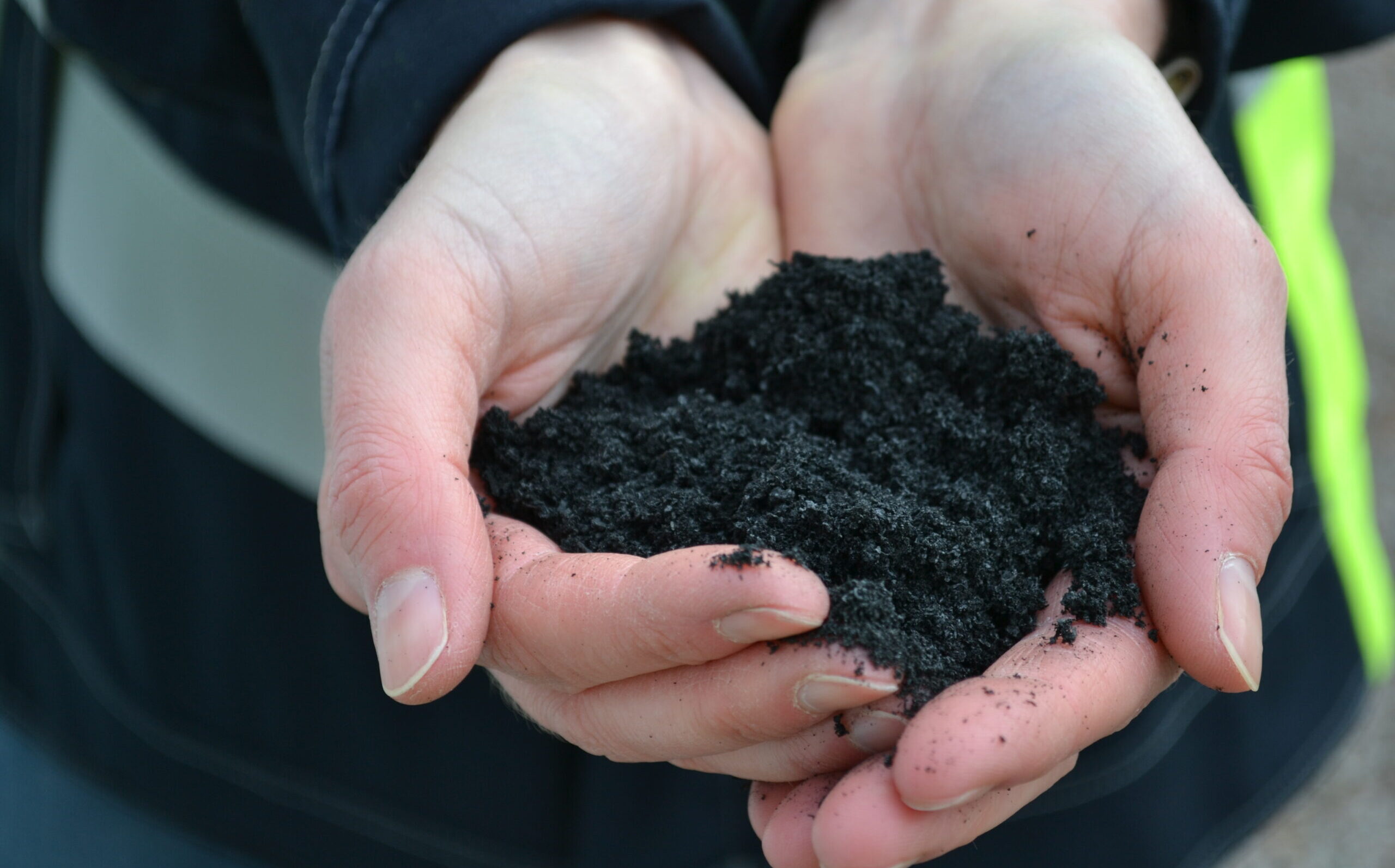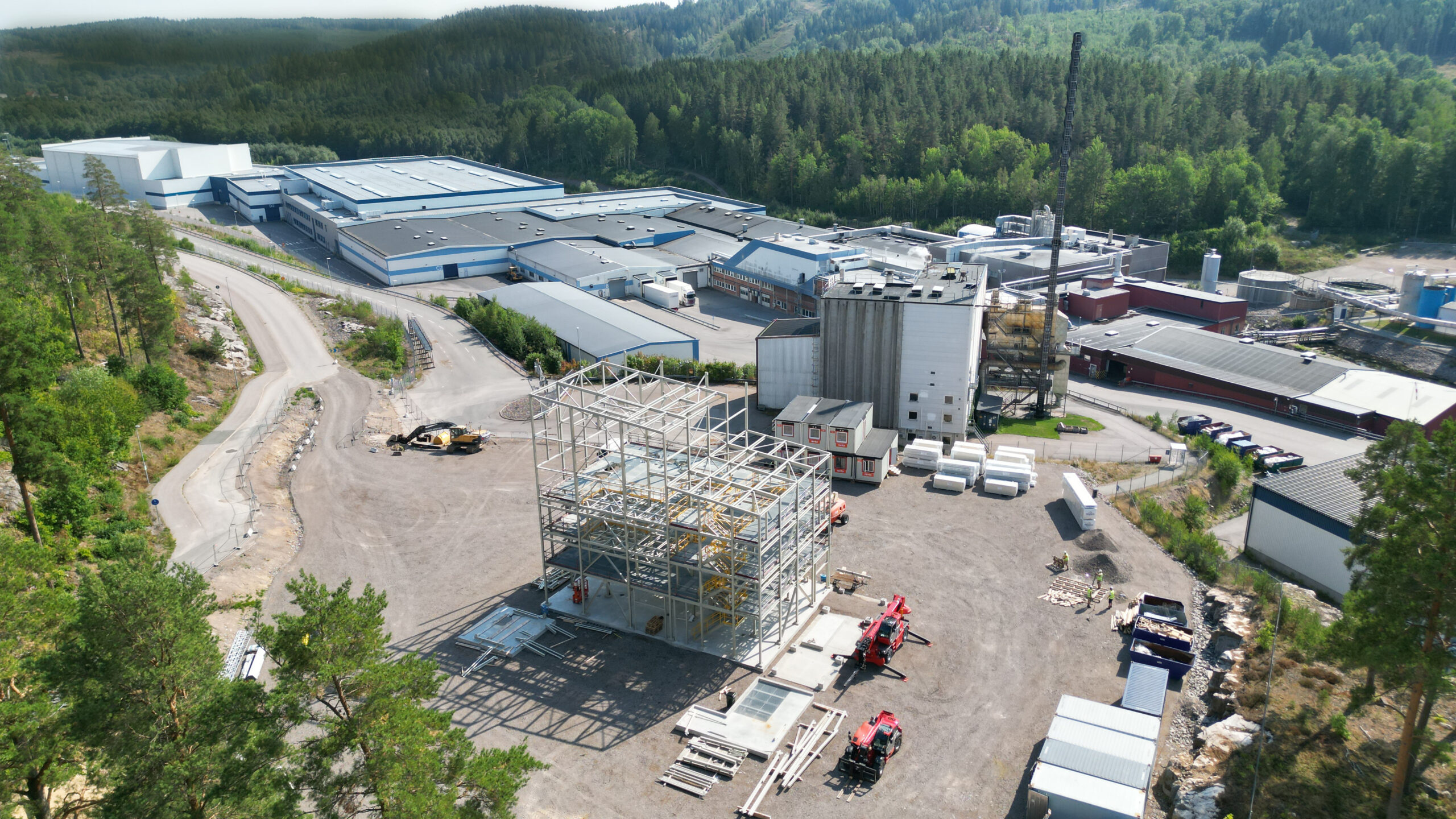BIochar
Biochar is a valuable by-product from biosyngas production. A porous material with a very large surface area and high carbon content that is produced by heating biomass in high temperatures and in an oxygen-limited environment.
Biochar is a carbon rich material produced in an oxygen-limited environment, called pyrolysis or biomass gasification. Biochar consists of an inert (stable) carbon, which means that the carbon is stored in the soil and not released into the atmosphere. Therefore biochar is able to constitute as an important carbon sink for a very long time, and with other positive effects for the climate. Biochar is a recognized CDR technology (named BCR, biochar carbon removal) and is today known and recognized in the carbon credit market (one credit = one ton of CO2e). According to the latest IPPC report, biochar is described as one of the fastest ways to reduce carbon in the atmosphere.
Application. Biochar can be used for various applications thanks to its unique properties and benefits. When incorporated into agricultural soils, it can improve soil structure, holds more water and nutrients. It also enhances soil microbial activity, leading to improved plant health and increased crop yields. In addition, it significantly reduces methane and nitrous oxide emissions when insert into the soil or as a animal bedding additive. The latter is also seen in promoting the overall animal health. Biochar can replace fossil carbon and be used in the metallurgic industry or in the active carbon filter industry.
Depending on type of biomass feedstock and gasification and pyrolysis technologies, the specific use will vary.
FARMING
agriculture
steel industry
active carbon filter
Biochar: more than a climate solution. Biochar is a result in biomass heating in an oxygen-limited environment. It is one of more products, such as biosyngas that can be used for heating, electricity production or to replace fossil gases in process heating. Biochar is a carbon-negative process, binds up to three times its own weight to CO2, and actively reducing the concentration of CO2 in the atmosphere. During the biochar production process, the labile carbon found in decaying plant material undergoes a transformation into a stable carbon structure, securely stored within the biochar itself. Once incorporated into the soil, this carbon remains locked away for potentially hundreds or even thousands of years. To simplify, if the feedstocks used for biochar production were left to naturally decompose, they would release significantly larger amounts of carbon dioxide into the atmosphere. However, through the controlled heating and conversion of these feedstocks into a stable, non-reactive form, biochar technology effectively diminishes the levels of carbon dioxide in the atmosphere. Biochar also contributes to the mitigation of climate change by enriching the soils, which in turn lowers greenhouse gas emissions. Thanks to its properties it can be an important product for various types of applications.
Meva Biochar
Meva Energy’s biochar is produced through biomass gasification in an oxygen-limited environment as a by-stream from our biosyngas production. It has a high carbon content, low ash, and high porosity, making it an effective carbon sink with applications in agriculture, industry and animal feed.


Interest group
New association will develop the market for biochar in Sweden
The Biochar Sweden Innovation Cluster, a non-profit association that was started in 2024 with a clear mission: to bring together the entire biochar industry, from producers to users, and together develop the market for biochar and bioenergy through pyrolysis and gasification.
Feasability study
Cows could achieve better digestion health and lower methane emissions with biochar
In collaboration with Envinn, Swedish University of Agricultural Sciences (SLU), Skånefrö and Hushållningssällskapet Sjuhärad, Meva Energy is part of a feasibility study focused on using biochar as a feed additive for cattle. This project aims to understand biochar’s unique properties to increase animal health and reduce methane emissions.


